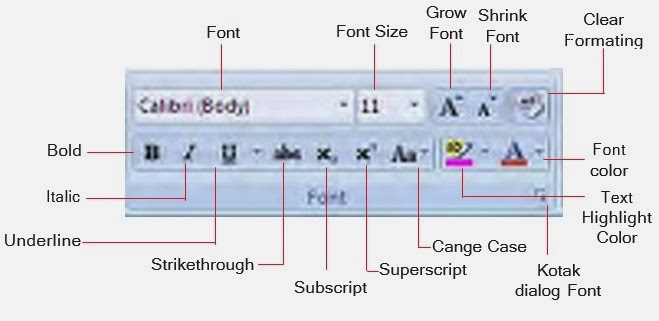Unlocking the Giant Font: MS Word's Font Size Limits Explored
Ever stared at a Word document, wishing you could make the text so big it filled the entire page? Maybe for a poster, a banner, or just for fun? We've all been there, toying with the font size dropdown, wondering, "Just how big can this thing get?" The journey to the largest possible font size in Microsoft Word is more than just dragging a slider – it's an exploration of limitations, a dance with design, and a surprising dive into the technical underpinnings of this ubiquitous word processor.
Let's embark on this typographical adventure. We'll uncover the secrets of maximum font sizes, explore the practicalities and the absurdities, and equip you with the knowledge to wield giant text with confidence and finesse. From creating eye-catching headlines to understanding the technical boundaries, we’ll cover it all. Prepare to think big – really big.
So, what's the biggest font size you can actually use in MS Word? The simple answer is 1638 points. That's huge. But reaching that limit isn't always straightforward. It depends on factors like the font you choose, the size of your document's margins, and even the version of Word you're using. Thinking about using a 1638-point font? Imagine trying to fit more than a few characters on a standard page! It becomes less about legible text and more about abstract art.
Historically, Word's font size limitations were likely tied to the technical constraints of earlier computing systems. Memory and processing power were precious resources, and arbitrarily large font sizes could have posed a significant challenge. Today, with vastly more powerful computers, these limitations are less about technical feasibility and more about practical usability. After all, a 1000-point font isn't exactly ideal for writing a novel.
The significance of understanding font size limits lies in maximizing the visual impact of your documents. While the extreme upper limits might not be practical for everyday use, knowing how to effectively use larger font sizes can be invaluable for creating posters, banners, signs, and other large-format materials. Imagine designing a birthday banner or a presentation headline – the ability to scale your text appropriately is key.
While 1638 points is the generally accepted upper limit, you can sometimes “trick” Word into displaying even larger sizes by using text boxes and scaling them up. This is a workaround rather than a true font size increase, but it can be useful in specific situations.
One benefit of using large font sizes is increased readability, particularly for presentations or materials viewed from a distance. Another advantage is the ability to create visually striking headlines and titles. Lastly, larger font sizes can be helpful for accessibility, making text easier to read for people with visual impairments.
Advantages and Disadvantages of Using Maximum Font Size
| Advantages | Disadvantages |
|---|---|
| Increased visibility from a distance | Limited characters per line |
| Emphasis and visual impact | Potential for text overflow |
| Improved accessibility for some users | May not be printer-friendly |
Best Practices:
1. Consider your audience and viewing distance when selecting a large font size.
2. Choose fonts that remain legible even at large sizes.
3. Test print large-format documents to avoid unexpected formatting issues.
4. Use large font sizes sparingly to avoid overwhelming the reader.
5. Explore alternative methods like scaling text boxes for even larger sizes.
FAQs:
1. What's the largest font size in MS Word? Generally, it's 1638 points.
2. Can I use larger sizes? You can scale text boxes for a larger visual appearance.
3. Why is there a limit? Likely due to historical technical limitations and practical usability concerns.
4. How do I change the font size? Use the font size dropdown menu in the Home tab.
5. What if my text overflows? Adjust margins, reduce the font size, or use a different font.
6. Are there different limits for different fonts? The maximum point size remains the same, but the visual size may differ.
7. Can I print extremely large font sizes? Your printer may have limitations.
8. What are some good fonts for large sizes? Simple, clear fonts like Arial or Calibri work well.
In conclusion, understanding the nuances of maximum font size in MS Word opens a world of creative possibilities. While the upper limits may seem excessive for everyday writing, they offer valuable tools for designing impactful visuals. By understanding the practicalities, limitations, and best practices for using large font sizes, you can elevate your documents from mundane text to attention-grabbing displays. So, embrace the power of giant fonts, experiment with different sizes, and let your words make a statement, literally! Remember to consider your audience, your message, and the overall design of your document. With a little creativity and a dash of technical know-how, the right font size can transform your words into powerful visual communication tools.
Perfecting your white shirt photo a guide for women
The power of black and white a timeless classic
Sherwin williams pewter green paint a deep dive














